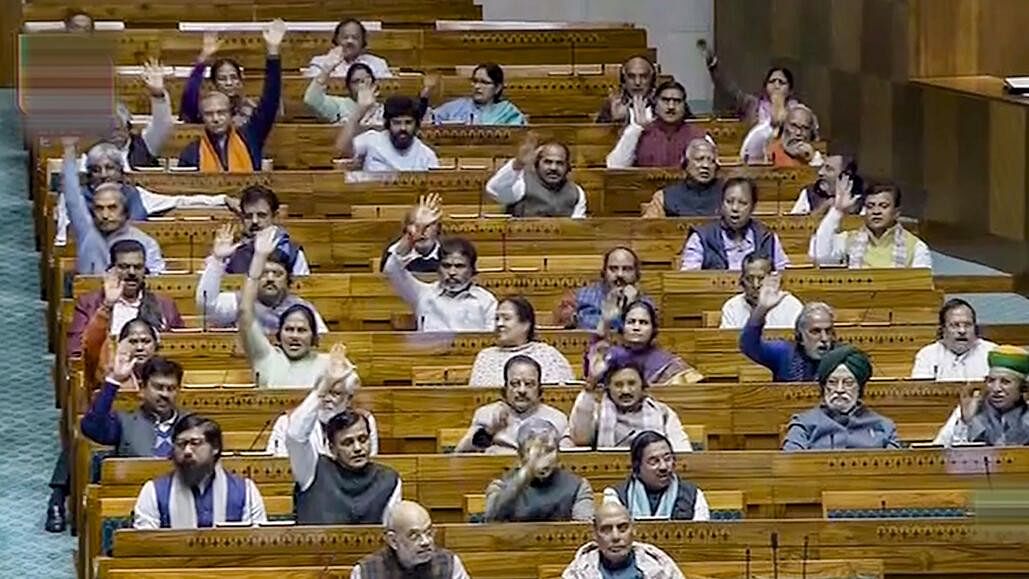
Union Home Minister Amit Shah, Defence Minister Rajnath Singh and others in the Lok Sabha during the Winter session of Parliament, in New Delhi, Wednesday, Dec. 20, 2023
Credit: PTI Photo
New Delhi: Among the reforms that the government has brought in through the three code bills, sources said that 29 more changes were incorporated in the Bills from the last draft that was introduced by the home minister in the last session. In all, over 158 meetings were conducted by the home minister, and 11 recommendations from the 13 demanded by the Opposition were adopted, sources said.
Key among the major reforms are inclusion of technological evidence such as surveillance, forensics, location etc as primary evidence, introduction of bail procedure and definition of terrorism, etc. The bills have also laid down the provision for e-courts, and sources said that in the next month, the first such court will be inaugurated in Chandigarh.
The Standing Committee on Home Affairs, which scrutinised the three bills, recommended gender-neutral code bills, gender-neutral rape laws, lesser punishment under section 353 of IPC, and increase in punishments for adulteration of food. Sources in the government said that former home minister P Chidambaram too, sent in a key recommendation. “He suggested that there was no need for a new definition of terrorism,” sources said.
The government, however, in the new legislations, expanded the definition of “terrorist act” to include “economic security” of the country.
Home minister Amit Shah first brought in the Bills in August this year, and sent them the same day to the Standing Committee. In December, he withdrew the three bills and replaced them with the new bills to reflect some changes as suggested by the Committee. The Bills were also renamed since, sources said, no two legislations with the same name can be introduced in the same year.
Government sources said the new bills to accommodate reflected 29 key chances and 373 grammatical changes.
Another key focus of the Bill was the inclusion of forensics. Any crime that attracts a sentencing of more than seven years will have to mandatorily include forensic services. Government sources also said that home minister Amit Shah sat with the Forensic Science Laboratory (FSL) for more than 70 hours over the course of the drafting of the Bills to find out the details of digital imprints.
In the new Bills, technological evidence has been prioritised. For instance, searches by the police in criminal cases will now have to be videographed so that there is less chances of framing an innocent person.